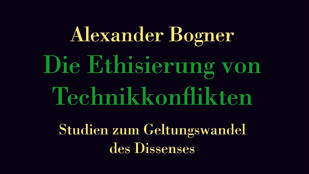Ethicisation
Sociology of bioethical expertise. Bioethics Councils and citizens’ participation: New forms of policy advice on ethical issues in Austria and Europe

Ethical aspects have replaced health and environmental risks as the centre of the debate around new technologies.
Whereas in the past, big technology controversies, ie about the use of nuclear energy or biotechnology, mostly focused on health and environmental risks, today’s debate about new technologies revolves around their ethical implications. In other words, we observe an ethicisation of technology controversies. This has considerable consequences for technology governance.
The ITA-project under the same name focused on the question of what will change for science and politics if the benefits and risks of a technology become highlighted in ethical terms. A major outcome of this project is the book “The Ethicisation of Technology Controversies. Studies on the changing status of disagreement” (Velbrück Wissenschaft, 2011). It includes case studies about citizens consultations and ethics commissions.
Expertise meets new expectations
Ethics expertise is valued according to how balanced it is, not according to the strict criteria of scientific objectivity. It is supposed to entail a broad spectrum of different positions.
Ethicisation fosters citizen participation
In questions of values we are all experts, there is simply no valid reason to exclude anyone from the debate. Hence, in the context of ethicisation, we observe a boom in participation.
Authenticity counts
Not (expert) knowledge but conscience-driven judgements legitimise political decisions. Authenticity and personal credibility become a major resource of legitimisation.
Duration
07/2007 - 12/2009